-
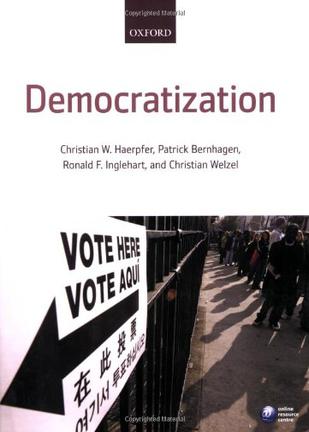
Democratization
1: Christian W. Haerpfer, Patrick Bernhagen, Ronald F. Inglehart and Christian Welzel: Introduction Theoretical and Historical Perspectives 2: Richard Rose: Democratic and Undemocratic States 3: Patrick Bernhagen: Measuring Democracy and Democratization 4: Dirk Berg-Schlosser: Long Waves and Conjunctures of Democratization 5: John Markoff (with Amy White): The Global Wave of Democratization 6: Christian Welzel: Theories of Democratization Causes and Dimensions of Democratization 7: Hakan Yilmaz: The International Context 8: Patrick Bernhagen: Democracy, Business and the Economy 9: Chritian Welzel and Ronald F. Inglehart: Political Culture, Mass Beliefs and Value Change 10: Pamela Paxton: Gender and Democratization 11: Natalia Letki: Social Capital and Civil Society Actors and Institutions 12: Federico M. Rossi and Donatella della Porta: Social Movements, Trade Unions and Advocacy Networks 13: Ian McAllister and Stephen White: Conventional Citizen Participation 14: Leonardo Morlino: Political Parties 15: Matthijs Bogaards: Electoral Systems and Institutional Design in New Democracies 16: Katrin Voltmer and Gary Rawnsley: The Media 17: Stephen Fish and Jason Wittenberg: Failed Democratization Regions of Democratization 18: Richard Gunther: Southern Europe 19: Andrea Oelsner and Mervyn Bain: Latin America 20: Christian W. Haerpfer: Post-Communist Europe and Post-Soviet Russia 21: Francesco Cavatorta: The Middle East and North Africa 22: Michael Bratton: Sub-Saharan Africa 23: Doh Chull Shin and Rollin F. Tusalem: East Asia 24: Christian W. Haerpfer, Patrick Bernhagen, Ronald F. Inglehart and Christian Welzel: Conclusions and Outlook: The Future of Democratization -
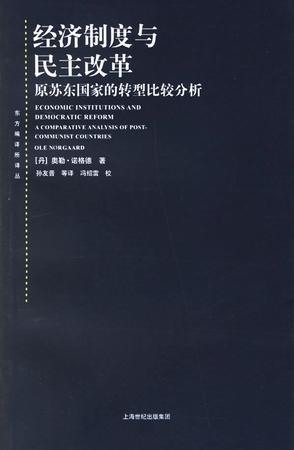
经济制度与民主改革
本书是一本针对原苏东国家的政治经济转型进行深入学术分析和理论思考的力作。全书涉猎广泛,综合运用全球资本主义、民主化、经验制度主义和历史制度主义等理论,结合比较统计法和个案分析法,以全球视野审视当前正在推行市场化和民主化改革的转型国家,重点剖析原苏东20国在过去十年(1989—1999)的经验教训,深入探讨市场与民主、经济转型与政治改革之间的关系。 全书从外部结构变量(初始条件和外部环境)和内部转型战略两个层面入手,以政治学视角剖析经济体制改革,将其划分为美国、西欧和东亚三种转型模式。作者旨在回答下述问题:为什么有些国家在实施经济转型方面比其他国家能力更强、成就更显著?激进转型战略与渐进转型战略哪一种更优越?哪一种模式是最佳转型模式?本书的结论发人深思,对于当前正在思考中国改革得失、探索未来改革之路的国内学者来说,具有深刻的启迪和借鉴意义。 -
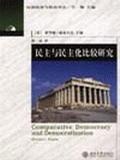
民主与民主化比较研究
-
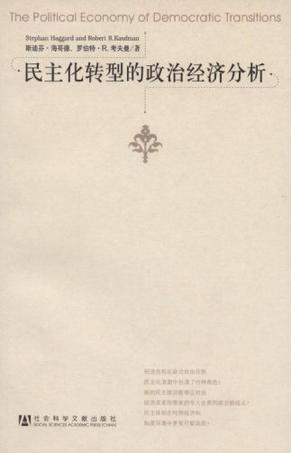
民主化转型的政治经济分析
在利用当代政治经济学理论以及十二年拉丁美洲和亚洲经验研究的基础上,本书作者发展了一种研究民主化转型的新视角:从分析经济危机和威权退却的关系开始,继而分析了威权统治的经济和制度遗产如何影响新民主政府发动和保持经济政策改革的能力,最后分析了政治经济改革成果在长时段内巩固的问题。作者在本书中强调了经济环境、竞争性群体的利益和权力以及代表机构(尤其是政党)居间调节角色的关系。 -
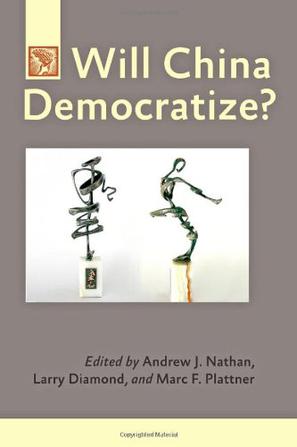
Will China Democratize?
While China has achieved extraordinary economic success as it has moved toward open markets and international trade, its leadership maintains an authoritarian grip, repressing political movements, controlling all internet traffic, and opposing any democratic activity. Because of its huge population, more than half the people in the world who lack political freedom live in China. Its undemocratic example is attractive to other authoritarian regimes. But can China continue its growth without political reform? In Will China Democratize?, Andrew J. Nathan, Larry Diamond, and Marc F. Plattner present valuable analysis for anyone interested in this significant yet perplexing question. Since the Journal of Democracy’s very first issue in January 1990, which featured articles reflecting on the then-recent Tiananmen Square massacre, the Journal has regularly published articles about China and its politics. By bringing together the wide spectrum of views that have appeared in the Journal’s pages—from contributors including Fang Lizhi, Perry Link, Michel Oksenberg, Minxin Pei, Henry S. Rowen, and Nobel laureate Liu Xiaobo— Will China Democratize? provides a clear view of the complex forces driving change in China's regime and society. Whether China will democratize—and if so, when and how—has not become any easier to answer today, but it is more crucial for the future of international politics than ever before. -
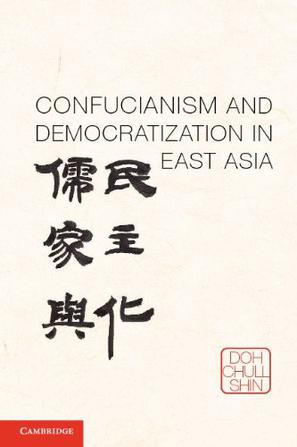
Confucianism and Democratization in East Asia
For decades, scholars and politicians have vigorously debated whether Confucianism is compatible with democracy, yet little is known about how it affects the process of democratization in East Asia. In this book, Doh Chull Shin examines the prevalence of core Confucian legacies and their impacts on civic and political orientations in six Confucian countries: China, Japan, South Korea, Singapore, Taiwan, and Vietnam. Analyses of the Asian Barometer and World Values surveys reveal that popular attachment to Confucian legacies has mixed results on democratic demand. While Confucian political legacies encourage demand for a non-liberal democratic government that prioritizes the economic welfare of the community over the freedom of individual citizens, its social legacies promote interpersonal trust and tolerance, which are critical components of democratic civic life. Thus, the author argues that citizens of historically Confucian Asia have an opportunity to combine the best of Confucian ideals and democratic principles in a novel, particularly East Asian brand of democracy.